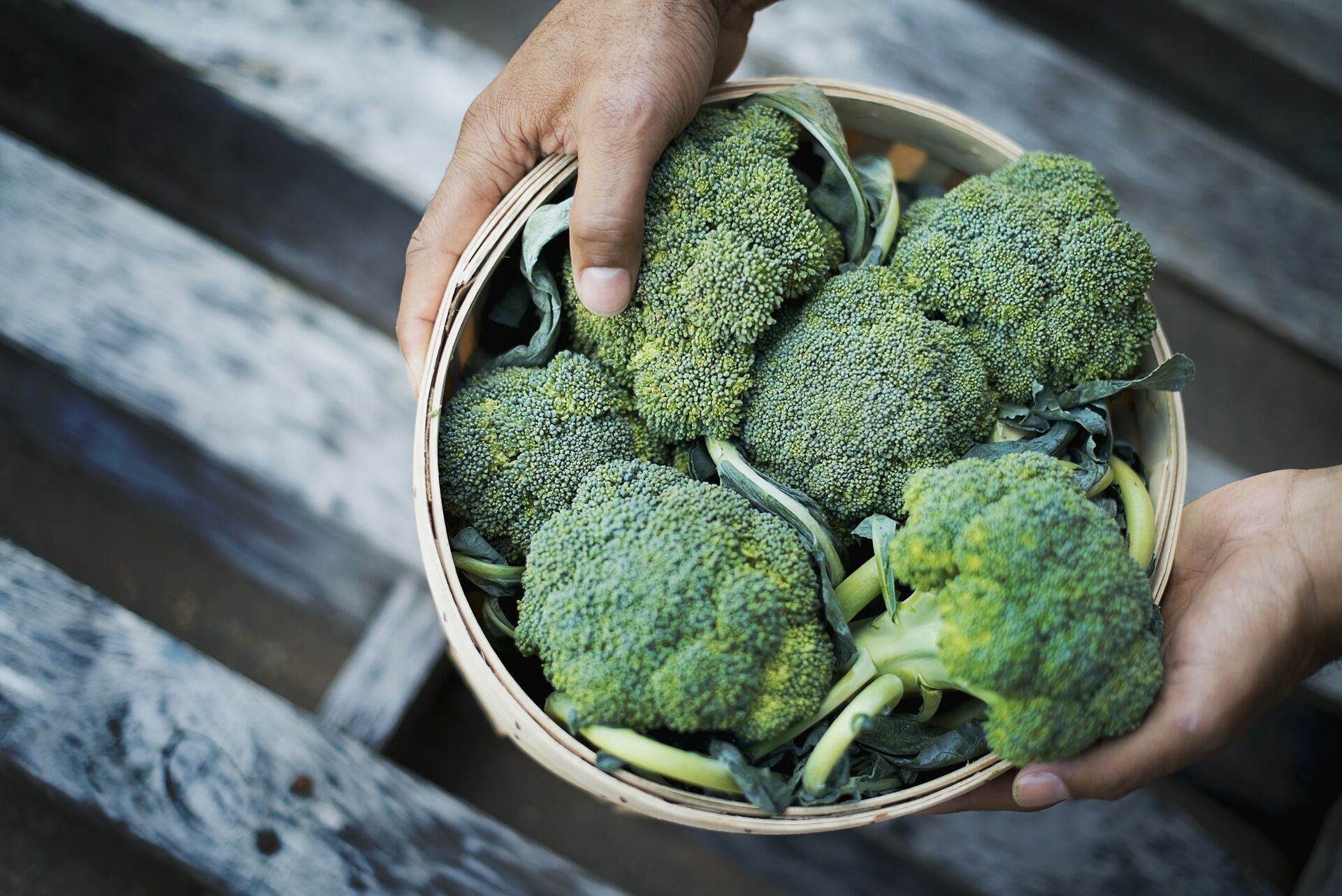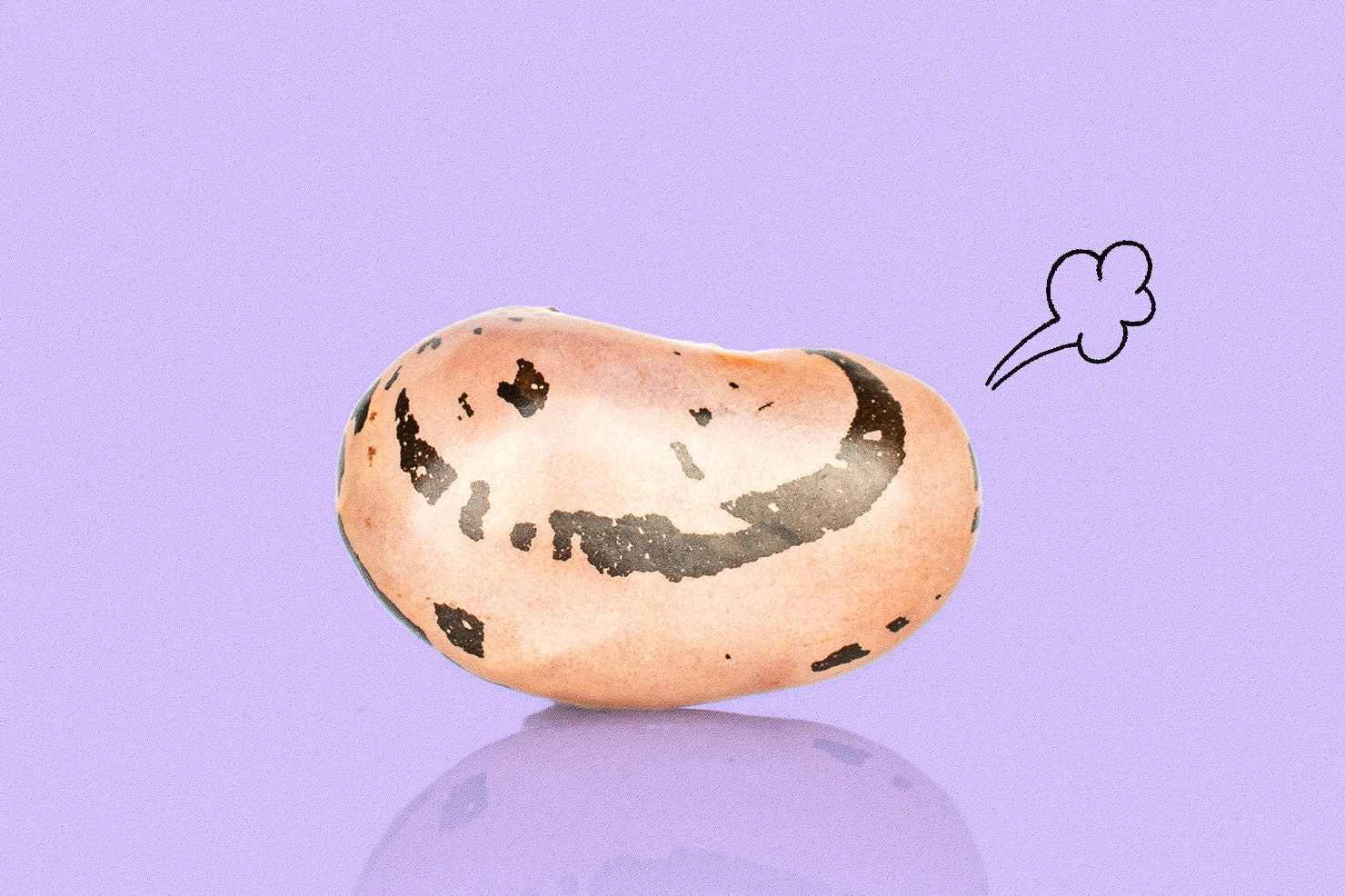

FAQs
Why Does Chilli Make You Fart
Modified: August 5, 2023
Get answers to your general questions about why chilli makes you fart. Explore the causes and remedies for this common digestive issue.
(Many of the links in this article redirect to a specific reviewed product. Your purchase of these products through affiliate links helps to generate commission for Under-tec.com, at no extra cost. Learn more)
Table of Contents
Introduction
Chilli peppers are a staple ingredient in many cuisines around the world, known for their spicy and flavorful kick. However, along with this fiery sensation, chilli peppers have also gained a notorious reputation for causing flatulence, commonly referred to as farting.
Whether you have experienced it yourself or witnessed a friend or family member deal with the aftermath of a spicy chilli meal, you may be wondering why exactly chilli peppers have this effect on our digestive system. In this article, we will explore the science behind why chilli makes you fart and uncover the mysteries behind this natural bodily reaction.
Before we dive into the spicy details, it’s important to understand that farting is a normal and necessary bodily function. It occurs when excess air or gas builds up in the digestive system and needs to be released. However, certain foods and ingredients, like chilli peppers, can increase the production of gas in the gut, leading to more frequent and odorous flatulence.
To understand why chilli causes flatulence, we need to examine the chemical compounds found in these fiery peppers and how they interact with our digestive system. So, let’s put on our lab coats and explore the fascinating science behind the spicy sensation of chilli peppers!
The Science of Chilli
Chilli peppers belong to the Capsicum genus and are packed with a chemical compound called capsaicin. Capsaicin is responsible for the fiery sensation we feel when we consume chilli peppers. It stimulates the sensory nerves in our mouth, creating a burning sensation that can range from mildly spicy to intensely hot.
When we eat chilli peppers, our taste buds send signals to our brain, triggering a release of endorphins. These endorphins are the body’s natural painkillers, which can create a sense of euphoria and pleasure. This is why some people enjoy the spicy kick and seek out the fiery heat of chilli peppers.
But how does capsaicin cause flatulence? The answer lies in how our digestive system interacts with this chemical compound. After consuming chilli peppers, capsaicin travels through the digestive tract, reaching the small intestine, where it can irritate the lining of the gut.
When the gut lining is irritated, it triggers a response from the body to speed up digestion, leading to increased movement of food through the intestines. This accelerated digestion can result in the fermentation of undigested carbohydrates in the large intestine, leading to the production of excess gas, such as carbon dioxide, methane, and hydrogen sulfide.
Furthermore, capsaicin can also bind to receptors in the stomach, triggering the release of more gastric acid. This increased production of gastric acid can contribute to indigestion, heartburn, and further exacerbate flatulence.
While the exact mechanisms by which chilli peppers cause flatulence are still being studied, it is clear that capsaicin plays a significant role in the digestive process and can have an impact on gastrointestinal distress.
But fear not, it’s not all doom and gloom! There are ways to mitigate the potential flatulence caused by chilli consumption. In the following sections, we will delve deeper into the breakdown of chilli by intestinal bacteria and explore some tips to minimize farting after indulging in your favorite spicy dishes.
The Chemical Compound Responsible for the Heat
As mentioned earlier, the chemical compound responsible for the intense heat of chilli peppers is called capsaicin. Capsaicin is a colorless, odorless, and crystalline substance found in the tissues of chilli peppers.
When we consume capsaicin, it interacts with the pain receptors in our mouths and triggers a burning sensation. These receptors, known as TRPV1 receptors, are specifically designed to detect heat and pain. When capsaicin binds to these receptors, it activates them, causing a sensation of intense heat.
Interestingly, capsaicin doesn’t actually cause any physical damage or harm to our tissues. Instead, it tricks our bodies into perceiving heat by activating the same pain receptors that are sensitive to actual heat.
The intensity of the heat experienced when consuming chilli peppers is measured using the Scoville scale. This scale quantifies the amount of capsaicin in a chilli pepper and assigns it a numerical value. Higher Scoville ratings indicate a higher concentration of capsaicin and, therefore, a hotter pepper.
In addition to capsaicin, chilli peppers also contain other related compounds called capsaicinoids, including dihydrocapsaicin, nordihydrocapsaicin, and homocapsaicin. These compounds contribute to the overall spiciness and heat of the chilli pepper.
Interestingly, capsaicin has been found to have potential health benefits. It is known for its anti-inflammatory, analgesic, and even antimicrobial properties. It has been used in topical creams and ointments for pain relief and various medical treatments.
However, when consumed in large quantities or by individuals with a sensitive digestive system, capsaicin can cause gastrointestinal discomfort, including flatulence.
Understanding the role of capsaicin and its effects on our body helps us grasp the science behind the fiery heat of chilli peppers. In the next section, we will explore why consuming chilli peppers can lead to increased flatulence and how our intestinal bacteria play a role in this process.
Why Chilli Causes Flatulence
Chilli peppers have a reputation for causing flatulence, but why does this happen? The answer lies in the composition of chilli peppers and how they interact with our digestive system.
When we consume chilli peppers, our bodies break down the active compounds, including capsaicin. As capsaicin travels through the digestive tract, it can irritate the lining of the gut, particularly in the small intestine.
This gut irritation triggers the release of substances that accelerate digestion, causing food to move more quickly through the intestines. As a result, the undigested carbohydrates present in the food can enter the large intestine more rapidly than usual.
Once in the large intestine, these undigested carbohydrates become a feast for our intestinal bacteria. The bacteria break down these carbohydrates through a process called fermentation, producing gases such as carbon dioxide, methane, and hydrogen sulfide as by-products. It is this excess gas production that leads to flatulence.
Aside from the gut irritation caused by capsaicin, chilli peppers can also increase the production of gastric acid in the stomach. This increase in gastric acid can contribute to indigestion and heartburn, further exacerbating flatulence.
Additionally, our individual gut microbiota can also influence the severity of flatulence after consuming chilli peppers. The composition of our intestinal bacteria varies from person to person, and those with a higher number of certain types of bacteria may be more prone to increased gas production.
Furthermore, the spiciness of chilli peppers can stimulate the nerves in our digestive system, leading to increased gut motility. This enhanced movement can also contribute to gas accumulation and flatulence.
It’s important to note that not everyone experiences flatulence to the same extent after eating chilli peppers. Some individuals may have a higher tolerance for spicy foods, while others may be more sensitive to the effects of capsaicin. Other factors, such as overall gut health and individual dietary habits, can also influence how our bodies react to the consumption of chilli peppers.
Understanding why chilli causes flatulence is a stepping stone to finding ways to minimize its effects. In the next section, we will explore some strategies to help reduce farting after consuming chilli peppers.
How Intestinal Bacteria Break Down Chilli
Our intestinal bacteria play a crucial role in the breakdown of chilli peppers and the production of flatulence. These bacteria, collectively known as the gut microbiota, thrive in our digestive system and have the ability to break down various components of our diet, including the compounds found in chilli peppers.
When we consume chilli peppers, the capsaicin and other compounds present in them can enter the large intestine undigested. Here, they encounter a diverse community of intestinal bacteria that are ready to feast on the remnants of our meal.
These bacteria possess enzymes capable of breaking down the complex carbohydrates in the chilli peppers, including cellulose and pectin. Through a process of fermentation, the bacteria metabolize these carbohydrates and produce gases as by-products.
During fermentation, the bacteria convert the carbohydrates into simpler compounds such as short-chain fatty acids and gases. The gases, including carbon dioxide, methane, and hydrogen sulfide, can accumulate in the intestines, leading to increased flatulence.
Furthermore, the breakdown of chilli peppers by intestinal bacteria can also release additional compounds that contribute to gas production. For example, certain bacteria can produce sulfur-containing compounds from natural sulfur-containing amino acids found in chilli peppers. These sulfur compounds, such as hydrogen sulfide, can have a distinct odor, adding to the overall flatulence experience.
The composition and diversity of our gut microbiota can vary from person to person. This diversity, along with the presence of specific types of bacteria, can influence the extent of gas production after consuming chilli peppers. Individuals with a higher number of gas-producing bacteria may experience more significant flatulence as a result of chilli consumption.
It is important to note that the breakdown of chilli peppers by intestinal bacteria is a natural and necessary process for digestion. However, factors such as the amount of chilli consumed, individual gut microbiota composition, and overall gut health can impact the extent of gas production and subsequent flatulence.
Now that we understand how intestinal bacteria break down chilli, let’s explore some tips to help minimize farting after enjoying a spicy meal in the next section.
The Role of Capsaicin in Gastrointestinal Distress
Capsaicin, the compound responsible for the heat and spiciness of chilli peppers, can also play a role in causing gastrointestinal distress. While capsaicin itself is not harmful, it can irritate the lining of the digestive tract and lead to various digestive symptoms.
When capsaicin comes into contact with the digestive system, it can stimulate the release of substances like substance P, which is involved in the transmission of pain signals. This can result in feelings of burning or discomfort in the stomach and intestines, commonly referred to as heartburn or indigestion.
Capsaicin can also increase the production of gastric acid in the stomach. While gastric acid is essential for proper digestion, excessive amounts can lead to discomfort, acid reflux, and worsen existing digestive conditions such as gastritis or peptic ulcers.
Furthermore, capsaicin can affect the normal contractions of the digestive muscles. It can speed up the movement of food through the intestines, which can contribute to diarrhea or loose stools. This rapid transit time may be especially noticeable when consuming large amounts of spicy foods.
In addition, capsaicin has been found to have pro-inflammatory effects in some individuals. Inflammation in the digestive tract, such as in conditions like irritable bowel syndrome (IBS), can be exacerbated by capsaicin and lead to increased gastrointestinal distress and discomfort.
It is also worth noting that individuals with existing digestive conditions or sensitivity to capsaicin may experience more severe gastrointestinal symptoms after consuming chilli peppers. If you have a known gastrointestinal condition, it is best to consult with your healthcare provider before incorporating spicy foods into your diet.
While capsaicin can contribute to gastrointestinal distress, it’s important to remember that the effects can vary from person to person. Some individuals may have a higher tolerance for capsaicin and experience minimal discomfort, while others may be more sensitive and experience more significant digestive symptoms.
Now that we understand the role of capsaicin in gastrointestinal distress, let’s explore some tips in the next section to help minimize farting and other digestive discomforts after consuming chilli peppers.
Tips to Minimize Farting from Chilli Consumption
While flatulence is a natural bodily process that can occur after consuming chilli peppers, there are several strategies you can employ to help minimize excessive farting and digestive discomfort. Here are some tips to consider:
- Start Slow: If you’re new to eating spicy foods, it’s best to start with milder chilli peppers and gradually increase the spiciness as your body adjusts. This allows your digestive system to adapt and may help reduce the severity of flatulence.
- Be Mindful of Portion Sizes: Consuming large quantities of chilli peppers in one sitting can overwhelm your digestive system and increase the likelihood of flatulence. Moderation is key, so enjoy spicy foods in reasonable portions.
- Pair with Digestive Aids: Certain herbs and spices, such as ginger and fennel, are known for their digestive properties. Consider including these ingredients in your meals containing chilli peppers to ease digestive discomfort and support healthy digestion.
- Chew Thoroughly: Take your time to chew your food properly, including chilli peppers. Chewing thoroughly can aid in the breakdown of food and make it easier to digest, potentially reducing bloating and gas production.
- Include Fiber-Rich Foods: High-fiber foods can help regulate digestion and promote bowel regularity. Incorporate fiber-rich ingredients like whole grains, legumes, fruits, and vegetables into your meals alongside chilli peppers to support healthy digestion.
- Stay Hydrated: Drinking an adequate amount of water throughout the day can help promote proper digestion and prevent constipation. Aim for at least eight glasses of water per day to support overall digestive health.
- Avoid Trigger Foods: Some foods are known to exacerbate flatulence, even without the addition of chilli peppers. Common culprits include beans, lentils, dairy products, and carbonated beverages. Avoiding these triggers can help minimize the overall gassiness.
- Consider Probiotics: Probiotics are beneficial bacteria that can promote a healthy gut microbiota balance. Including probiotic-rich foods like yogurt or taking a supplement may help improve digestion and reduce flatulence.
- Relax and Manage Stress: Stress can affect digestion and contribute to gastrointestinal discomfort. Engaging in stress-reducing activities, such as deep breathing exercises, meditation, or regular physical exercise, can help support a healthy digestive system.
Remember that everyone’s digestive system is unique, and what works for one person may not work for another. It is essential to listen to your body and make adjustments based on your personal needs and tolerances.
By implementing these strategies and maintaining an overall balanced and varied diet, you can enjoy the flavors and spiciness of chilli peppers while minimizing the uncomfortable side effects of excessive flatulence.
Conclusion
Chilli peppers add a fiery and flavorful kick to our meals, but they can also cause flatulence and digestive discomfort. Understanding the science behind why chilli peppers make you fart can help you make informed choices and minimize any unwanted side effects.
The compound responsible for the heat of chilli peppers, capsaicin, interacts with our digestive system and can irritate the gut lining, leading to increased gas production. Intestinal bacteria play a role in breaking down the components of chilli peppers, particularly the undigested carbohydrates, which can contribute to further gas production and flatulence.
To minimize farting from chilli consumption, it’s helpful to start slowly, be mindful of portion sizes, and incorporate digestive aids such as ginger and fennel. Chewing food thoroughly, including chilli peppers, can also aid in digestion. Including fiber-rich foods, staying hydrated, avoiding trigger foods, considering probiotics, and managing stress can all help promote a healthy digestive system and reduce flatulence.
Remember that individual tolerances and gut microbiota can vary, so it may be necessary to experiment and find what works best for you. Pay attention to your body’s response and make adjustments accordingly.
So, the next time you indulge in a spicy dish, armed with the knowledge of why chilli makes you fart and armed with these tips, you can enjoy the flavors of chilli peppers without worrying too much about excessive flatulence.










